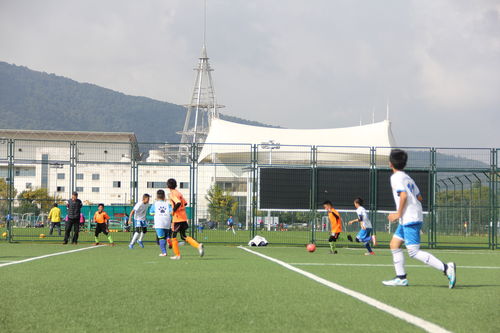体育助力成长英文怎么说
Title: The Role of Sports in Personal Growth
Introduction:
Sports play a vital role in personal growth and development, providing numerous opportunities for individuals to enhance their physical, mental, and social wellbeing. Engaging in sports activities not only promotes physical fitness but also nurtures essential life skills such as discipline, teamwork, perseverance, and leadership. In this article, we will explore how sports can contribute to personal growth and provide guidance on incorporating sports into one's life.
1. Physical Fitness and Health Benefits:
Participating in sports activities promotes physical fitness and overall wellbeing. Regular physical activity can help individuals maintain a healthy weight, reduce the risk of chronic diseases, and improve cardiovascular health. Sports enable individuals to develop agility, coordination, flexibility, and endurance, contributing to better overall physical fitness.
2. Mental and Emotional Development:
Engaging in sports can have a significant impact on mental and emotional wellbeing. Physical activity stimulates the release of endorphins, known as "feelgood" hormones, which can reduce stress and improve mood. Sports also provide a platform for individuals to set goals, work towards achieving them, and experience the satisfaction of accomplishment. These experiences can enhance selfconfidence, selfesteem, and resilience.
3. Skill Development:
Sports offer a unique opportunity for individuals to develop a range of skills that are valuable not only within sports but also in other areas of life. For example:
Discipline: Regular practice, following training schedules, and adhering to rules and regulations cultivate discipline.
Teamwork: Sports encourage collaboration, cooperation, and effective communication, essential skills for success in the workplace and personal relationships.
Perseverance: Overcoming challenges, setbacks, and failures in sports can teach individuals valuable lessons about perseverance and the importance of resilience in achieving goals.
4. Social Skills and Interpersonal Relationships:
Participating in sports provides individuals with opportunities to interact with teammates, opponents, coaches, and officials. These interactions help develop social skills such as empathy, respect, sportsmanship, and conflict resolution. In team sports, individuals learn to work together towards a common goal, fostering strong bonds and lasting friendships.

5. Leadership and Decision Making:
Sports provide an ideal platform for individuals to develop leadership qualities. Captaining a team or taking on leadership roles within sports organizations can enhance decisionmaking skills, strategic thinking, and the ability to motivate and inspire others. These leadership skills can then be transferred to other aspects of life, such as education and career.
Conclusion:
Participating in sports can significantly contribute to personal growth and development. Sports offer a unique combination of physical fitness, mental and emotional wellbeing, skill development, social interaction, and leadership opportunities. To harness the benefits of sports, it is important to find a sport or activity that aligns with one's interests and abilities. Incorporating sports into daily routines, whether through recreational participation or organized competitions, can lead to improved personal growth, enhanced wellbeing, and a fuller, more balanced life.









